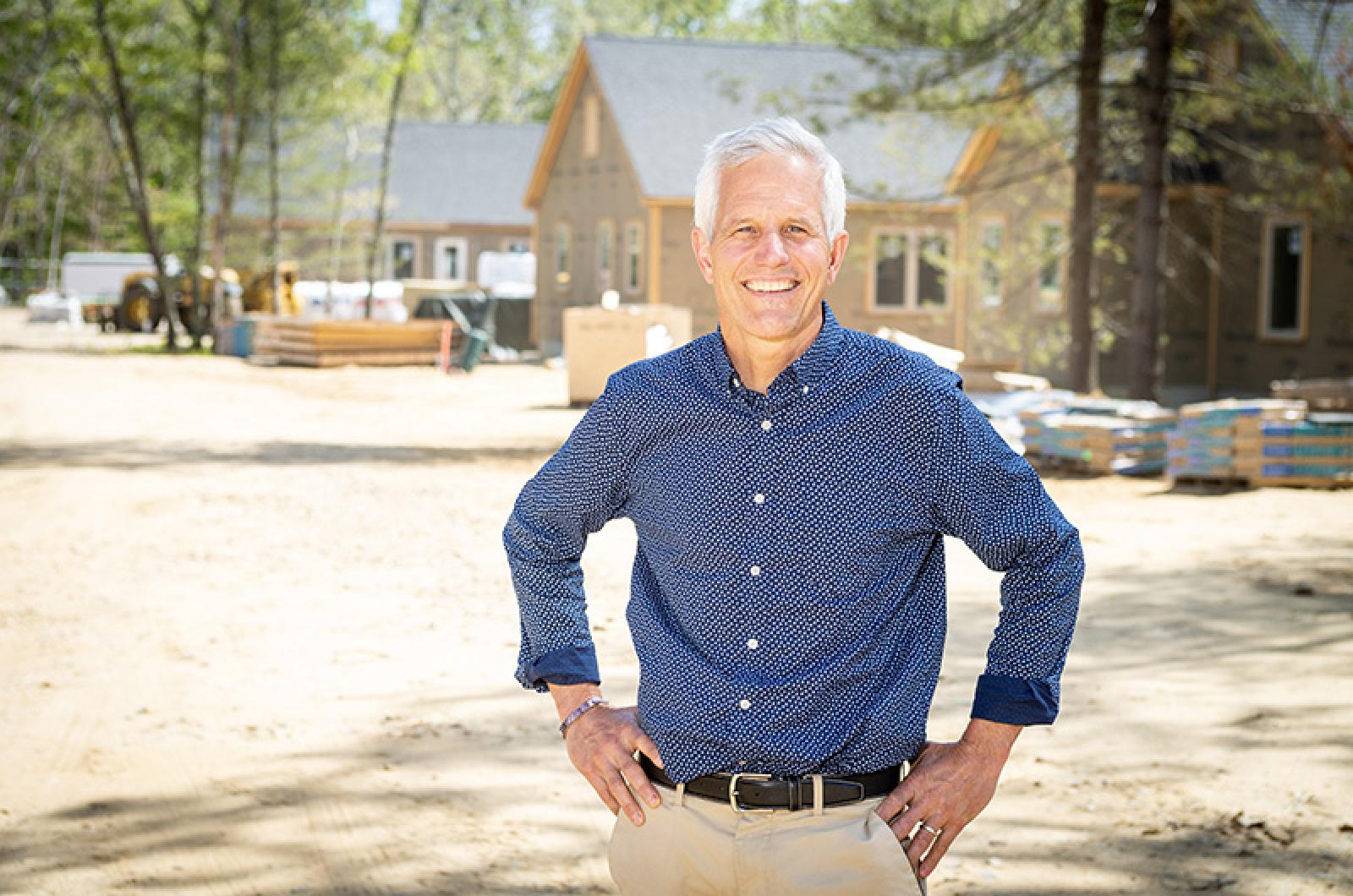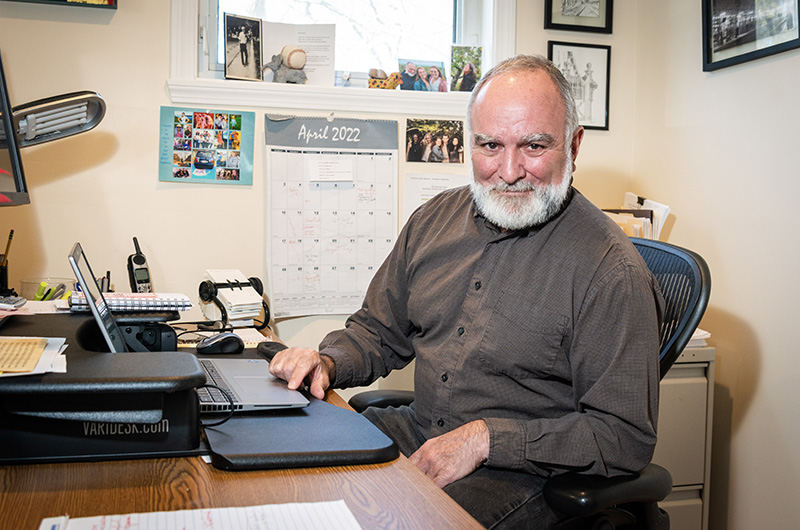Buoyed by a final, resounding vote of support this week in Tisbury for the Martha’s Vineyard housing bank, the coalition behind the plan is charting next steps in a still-lengthy process while efforts are under way across the Island to address an immediate need for affordable housing. The proposal to create a housing bank funded by a two per cent fee on most real estate transactions over $1 million now moves to a housing bank review committee. The committee’s role is to fine tune the proposed home rule bill that will ultimately need to be passed by the state legislature and signed by the governor.
The Coalition to Create the Martha’s Vineyard Housing Bank this week alerted the town’s select boards of the need to appoint one member each to the committee, which will consider amendments to the proposed legislation that are in line with the warrant article approved this spring by voters in all six Island towns.
Meanwhile, projects are in the pipeline at various stages around the Island to create home ownership and rental opportunities for Islanders who meet certain income guidelines. Next to come on line is Kuehn’s Way off State Road in Vineyard Haven. The largest rental project developed to date by the Island Housing Trust, Kuehn’s Way will provide 20 new rental apartments with a total of 40 bedrooms, according to executive director Philippe Jordi. Mr. Jordi sketched a rough timeline of August to finish construction with the goal of having tenants move in September or October. IHT recently began accepting applications, with a lottery planned in July to award the units.
A project to develop another 40 units on a seven-acre parcel on Meshacket Road in Edgartown is scheduled to break ground soon after years of discussion and planning, said Mark Hess, chairman of the Edgartown affordable housing committee. The project calls for 36 rental units geared toward people earning 80 per cent of the area median income and four home ownership opportunities for with people with slightly higher incomes.
Edgartown also recently awarded a three-acre plot of land by lottery for a homesite in the Quammox West subdivision on Chappaquiddick.
“There’s lots of things we’re trying to do, all the Island committees, everybody involved with Island housing is really trying to do as much as they can with all the resources they can muster,” Mr. Hess told the Gazette.
In Oak Bluffs, a two-phased project to create up to 60 housing units is being planned for town-owned land near the ice arena. Mark Leonard, chairman of the Oak Bluffs affordable housing committee, hopes the first phase of the Southern Tier development, which will have 47 units, will be reviewed by the Martha’s Vineyard Commission over the summer. The town is also in the midst of a few smaller projects: a roughly four-acre plot of land on County Road will provide affordable housing for up to 10 veterans and the town will convert retail space at the old pharmacy on Circuit avenue into two apartments.
“It’s kind of an exciting time here on the Island because every town has a project going. There was so long that nothing really happened,” said Mr. Leonard. “It all takes time and it’s not easy . . . you just can’t put up buildings fast.”
Voters in Chilmark approved a plan for 10 units on town-owned land at Peaked Hill Pastures at their annual town meeting. The project is still in its infancy as the select board recently formed a committee to put it out to bid.
Aquinnah voters gave the go-ahead to build four affordable apartments on town-owned land behind the town hall. The project is a first for the town as it has yet to develop any rental units, said Mike Hebert, chairman of the Aquinnah affordable housing committee.
David Vigneault, executive director of the Dukes County Regional Housing Authority, said there are 342 households on the authority’s waiting list for affordable housing, showing there is more work to do.
“The housing bank is the future,” he said. “What are we going to do in the meantime?”
Exactly when the housing bank might become a reality remains uncertain. This week, the coalition created a list of a dozen steps that must be taken before the bank can begin operation.
Once the housing bank review committee agrees to final language for legislation, the proposed bill will be sent to state Sen. Julian Cyr and Rep. Dylan Fernandes to be filed. Any substantial changes to the bill made thereafter must be approved by at least four of the participating towns’ select boards, acting by majority vote.
If the bill is passed by the legislature and signed by the governor, it would then come back to the Island to be approved again by voters in at least four town elections.
Pending creation of the housing bank, zoning changes could be a way to provide more immediate relief, Mr. Jordi said, noting that at the town meeting in Chilmark voters approved a change to eliminate the one-acre minimum requirement to build homesite houses, with restrictions.
Towns could also borrow wisdom from one another to come up with ways to provide more affordable units, Mr. Vigneault said. West Tisbury and Vineyard Haven have a multifamily housing bylaw, which gives the town more oversight compared to the state 40B permitting process. IHT used it to develop Scott’s Grove, which resulted in nine units in West Tisbury.
“One town or the other has one version or the other of something that all six towns could have,” he said.







Comments (11)
Comments
Comment policy »